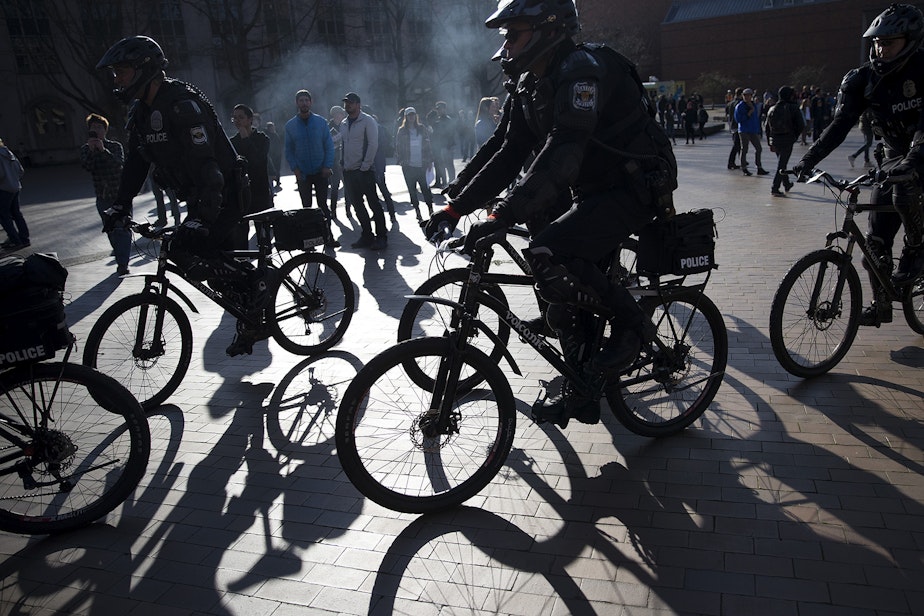Federal judge orders Seattle to fix police union contract

Seattle’s civilian Community Police Commission says a federal judge has sent a “strong message” that more changes are needed in the city’s police department.
U.S. District Judge James Robart said in a ruling filed Tuesday that the Seattle Police Department is partly out of compliance with an agreement to reduce the use of force.
Robart said a police union contract that the city OK'd last fall undermines accountability under the agreement and that must be changed for the city to regain federal compliance.
He said that under the contract, the arbitration system for handling cases of police misconduct reverted to an “old, inadequate accountability regime.”
The judge did not specify what the city would have to do to return to full compliance but his order raises the prospect of reworking the contract.
Robart ordered the city and its federal overseers to come up with a plan for assessing and fixing the accountability system, with a first report by July 15.
Last fall, the CPC had asked city leaders not to approve union contract, saying it undermined Seattle’s police accountability law and weakened key provisions to investigate and discipline police misconduct.
Robart’s ruling largely validates those concerns.
“Judge Robart agreed with the CPC’s position and, in doing so, is sending a strong message that the recent police contracts undermine accountability and must be improved,” the commission said in a statement.
Sponsored
The ruling will mean extended federal oversight of the police department's accountability system.
That federal oversight was scheduled to end next year, because the court had found that the city was complying with the major areas of the federal “consent decree” — the agreement governing changes in the police department.
In Tuesday’s ruling, Robart said he “remains hopeful” that the city could stay on track on those major areas.
Sponsored
But he said that on accountability, “the City will need to come back into full and effective with the Consent Decree, and then maintain that compliance for two years.”
SPD Chief Carmen Best responded to Robart's order with a message to SPD personnel. "It is because of your steadfast effort and commitment that we remain on track to see federal oversight of these areas of the Consent Decree end on schedule, eight months from now," she told them.
Best said she appreciates the court highlighting the accountability issue:
"As the practice of modern policing continues to rapidly evolve to meet increasingly complex demands," she said, "it is equally important that the systems by which we are held accountable keep pace in a manner that ensures full transparency and due process for all."
Seattle Mayor Jenny Durkan also congratulated SPD on the significant reforms so far. "We agree with the Court that we remain on track to meet all aspects of this order by January 2020," she said in a statement."
She said fulfilling Judge Robart's requirement will be a good thing.
"The Judge has ordered an assessment of the present accountability regime," she said. "Given the reforms and the changes made to the entire accountability system since the Consent Decree was entered, an assessment of the accountability regime, how it compares to other models across the nation, functions as a system and its impact on officers, policing and community confidence can only benefit our city.”
You can read Robart's full decision below.




